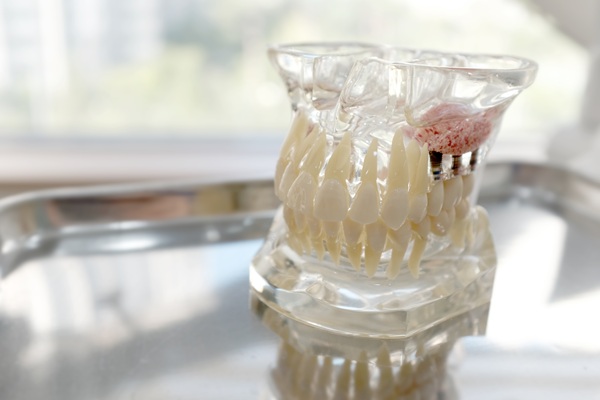Sleep Dentistry via IV Sedation

IV sedation is one of the more common types of sleep dentistry. If you are nervous about IV sedation or are considering asking your dentist about it, then learning the basics is a good first step. This review offers a definition of IV sedation for sleep dentistry, when it is recommended and what the risks are.
A review of IV sedation for sleep dentistry
There are several options for sleep dentistry available to patients. Depending on the type of procedure, the length of the procedure and the preferences and needs of the patient, a dentist may recommend one over another. IV sedation is one of the more frequently recommended methods of sleep dentistry due to the benefits and safety.
What is IV sedation?
IV sedation is a stronger form of sleep dentistry that makes the patient feel sleepy and less aware. The purpose of IV sedation is to minimize anxiety and pain before and during a dental procedure. It involves administering a sedative intravenously through a catheter after a needle is placed in the vein.
There are two main types of IV sedation: twilight and general anesthesia. Twilight is the more common form for dental purposes. With twilight IV sedation, the patient is awake and conscious. The patient is not conscious during general anesthesia, which is far rarer for dental purposes.
When is IV sedation recommended?
As mentioned, IV sedation is much stronger than oral sedation or nitrous oxide. Therefore, it is recommended for more invasive dental procedures that cause more anxiety and discomfort. However, some patients who have severe dental phobia may benefit from IV sedation even for less invasive procedures, such as root canal therapy or tooth extraction. For patients who only have a minor procedure and wish for a form of sleep dentistry that is not as strong, oral sedation or nitrous oxide (laughing gas) may be better options.
What are the risks of IV sedation?
As is the case with any form of medication, there are certain risks to know about, although most patients have minimal to no side effects. The risks of IV sedation include an allergic reaction, breathing complications and issues with blood pressure. To minimize the risks, the dentist examines the patient's medical history, allergies and other important information before the procedure.
What to expect after the procedure
The patient should arrange for a ride home after a procedure in which IV sedation is used. This ensures optimal safety for the patient, as they are likely to feel groggy for at least several hours afterward.
Contact our dental team to learn more about sleep dentistry
You can reach our dental team by phone or email to learn more about sleep dentistry and to arrange a consultation visit. We treat all types of oral health and cosmetic concerns, and we do everything in our power to ensure that our patients are comfortable and as pain-free as possible during treatment.
Request an appointment here: https://chico.drelloway.com or call Randal S Elloway DDS, Inc. at (530) 877-4994 for an appointment in our Chico office.
Check out what others are saying about our services on Yelp: Sleep Dentistry in Chico, CA.
Related Posts
Looking for a general dentist who offers laser dentistry services? This advanced dental treatment option is growing in popularity every day, as it offers various benefits that are not available using other treatment options. For example, according to the American Dental Association, lasers are used to reshape gums and remove bacteria during root canal procedures.A…
If you are supposed to get dental implant restoration, the dentist might recommend a bone graft as a necessary procedure. This procedure is often recommended for patients who may not have enough jawbone to support the implant. This article covers details you need to know about a bone graft.If a person has lost their teeth…
Do you need your wisdom teeth removed? Read on to learn about this common oral surgery procedure. The third set of molars, otherwise called the wisdom teeth, usually develop between 17 and 25 and are removed through oral surgery by a general dentist. Most individuals have at least one impacted wisdom tooth, which means it…
Sleep apnea is a common sleep disorder among overweight or obese people. A person with this condition often wakes up with a terrible headache and daytime tiredness. This results from pauses in breathing while sleeping and inadequate sleep. If you want to know how losing weight can help with your sleep apnea, here are explanations…

